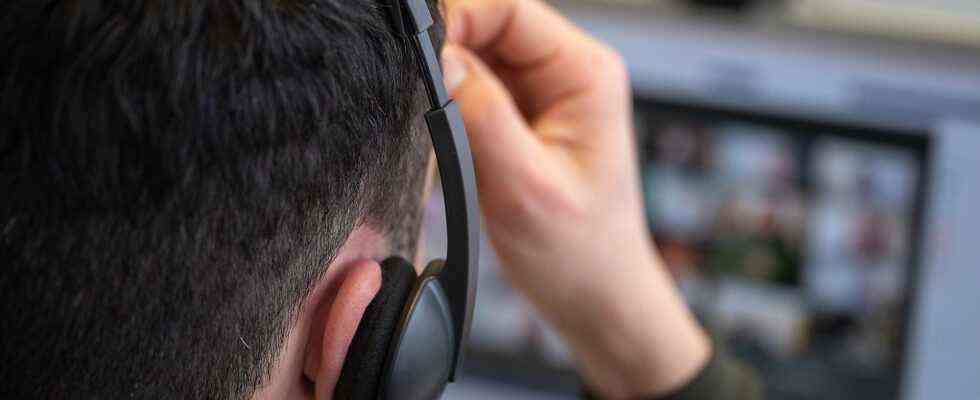Status: 07/17/2021 12:17 p.m.
The corona situation has changed the examination conditions at German universities: Students have to write exams online – and are heavily monitored. A privacy advocate now wants to put a stop to the practice.
For the first time in Germany, a data protection officer is taking action against the use of monitoring software for online exams at universities. The Baden-Württemberg state representative Stefan Brink said that a series of exams with remote supervision over the Internet had violated the law at universities in the southwest during the Corona period. “Permanent control of students in exam situations using technical tools that are too private is not acceptable.” When trying to prevent fraudulent attempts by students on their home computers, some teachers overshot the mark.
According to Brink, it has drawn up a catalog of requirements that is effective immediately and that goes beyond the State University Act in order to prevent violations of data protection and IT security. Video surveillance should be allowed, but a recording ban should apply. The use of platforms for remote supervision, which scan the examinee’s computer and thus also gain access to personal data, is therefore no longer permitted.
The Baden-Württemberg data protection officer Stefan Brink
Image: dpa
Series of notices and complaints
This means that universities and technical colleges are practically no longer allowed to use online tools from the US provider Proctorio. With the software, devices can be searched to see whether there are any tools on them. Numerous students had to play the appropriate software on their computers in order to be able to take an exam from home. According to the data protection officer, there have been a number of reports and complaints.
The software is intended, for example, to prevent the examinees from using search engines or copying something from the clipboard into the exam. During the exam, they then had to leave the camera and microphone on and were not allowed to leave their place in front of the computer. “They wanted to tell by their facial expressions whether someone was cheating,” said Brink. “We consider that to be hocus-pocus. These are massive encroachments on the freedom of students.”
Criticism also from the Society for Freedom Rights
It could also not be that some universities obtain inadmissible consent from students before exams. “There were no standardized, but very different solutions for online exams at the universities – sometimes even daring ones.”
On Wednesday, the Society for Freedom Rights in Berlin had already presented an opinion in which it was also pointed out inadmissible interference with the rights of students. “With the rapid digitization of the examination system, numerous universities implemented a level of monitoring in the past year that would be unthinkable for face-to-face exams,” said lawyer David Werdermann from the Society for Freedom Rights. “The basic rights of the students have been neglected.”
Search for willing students
The report is intended to serve as the basis for possible lawsuits. The association is now looking for students who want to take legal action against the surveillance practice. While the Baden-Württemberg data protection officer refrains from naming the universities concerned, the Society for Freedom Rights has identified four universities: the Technical University of Darmstadt, the Technical University of Munich, the University of Erfurt, the Humboldt University of Berlin and many distance learning universities.
Brink now wants to help the universities in the southwest “in the search for tailor-made, data protection-compliant solutions”. He said: “Of course, exam situations must be organized uniformly and fairly. The exams must also be supervised whenever necessary.” But he will continue to ensure that the civil rights of the students are protected. One is in “good talks” with the Ministry of Science in Stuttgart and the universities, “so that in future the rights of students in online exams will be safeguarded everywhere”.

